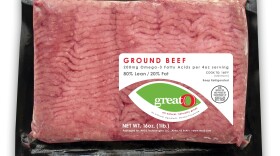
Eliza Barclay
-
Despite its name, the "pot pig" experiment isn't an attempt to develop a new meaty treat for stoners. Instead, a Seattle butcher is feeding marijuana seeds, stems and root bulbs to swine as a cheeky money-saving measure.
-
Hipsters may just be discovering the joys of backyard chickens, but in African megacities, people have been bringing their animals into the slums with them for decades. That's creating a new ecosystem of animals and huge numbers of people living closely together like never before.
-
After years of research, an animal scientist looking for ways to keep inflammation down in cattle came up with a novel approach: feed them flax. The flax in their food helps keep animals healthy and has an added benefit for people who later eat their meat: omega-3 enriched beef.
-
Actor Wendell Pierce, who stars in David Simon's Treme, is trying to combat New Orleans' food deserts by building convenience and grocery stores in the city's neediest areas. But a host of stumbling blocks still make it hard to get fresh, healthful foods to people living in these areas.
-
A new report makes the case that insects may be essential to feeding a planet of 7 billion people. Why? They're nutritious, better for the environment than other protein sources and can generate jobs, according to the U.N.'s Food and Agriculture Organization.
-
Treated human waste has been used on farmland for decades, but the ick factor has not entirely faded. Some environmentalists think the treatment process may not get rid of all the harmful contaminants that could be in the waste.
-
In 2007, Samoa banned the import of turkey tails from the U.S. to try to improve public health. But the ban kept the island nation from entering the World Trade Organization, so its days are numbered.
-
The aftermath of office vending machine binges can be unpleasant, psychologically and physically. So we're glad to be sitting far from the vending machine in NPR's new building, where we'll be moving on Monday.
-
Believe it or not, there's a veritable subculture of otherwise healthy people who simply don't like eating real food. But liquid meal replacements may not be their best bet if they want an alternative.
-
The number of kids with dangerous levels of lead in their blood hasn't declined much in the past decade, as the government has remained focused on managing lead-based paint. Now researchers argue that more attention to contaminated soil is needed to prevent lead poisoning.









